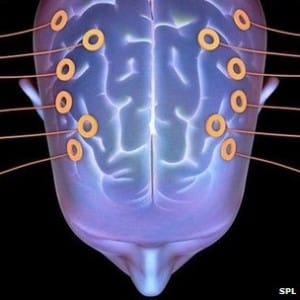 Studies have found that early intervention for children with autism can help improve the overall quality of life by helping them achieve their highest potential level of functioning and habilitation. And now, with 1 in 88 children being diagnosed with the condition, it is clear that earlier diagnosis needs to be made. Unfortunately, diagnosis of autism can be difficult to obtain, especially for children on the higher end of the spectrum and with Asperger’s. But a new study may change all of that.
Studies have found that early intervention for children with autism can help improve the overall quality of life by helping them achieve their highest potential level of functioning and habilitation. And now, with 1 in 88 children being diagnosed with the condition, it is clear that earlier diagnosis needs to be made. Unfortunately, diagnosis of autism can be difficult to obtain, especially for children on the higher end of the spectrum and with Asperger’s. But a new study may change all of that.
A research team at Boston Children’s Hospital says that EEGs, a diagnostic test that records electrical brain activity, may be helpful in providing autism diagnosis, even as early as two years of age. While more research is still needed to confirm the results, this new information could make obtaining a diagnosis easier and earlier for those with autism spectrum disorder.
In the study, researchers analyzed the EEG results of nearly 1,000 children. They were able to clearly distinguish children with autism from children that did not have autism after discovering 33 specific patterns that seemed to be linked to autism. Those patterns were found consistently among children with autism across all age groups – ages 2 to 12 years old. The accuracy rate after repeating the analysis 10 times reached 90%.
The team now plans to repeat their study with children diagnosed with Asperger’s syndrome. While Asperger’s is considered a subset of autism, individuals with this particular condition tend to have a higher-than-average intelligence and display fewer struggles with speech than those with autism spectrum disorder.
Dr. Frank Duffy, the leader of the investigation, believes that the testing may help determine if Asperger’s should be thought of as a completely different condition, rather than a subset of autism. EEGs may also help in determining if certain treatments are an effect on the condition. Even more interesting is that it may help determine if the siblings of diagnosed children are also suffering from the condition.
“It is a great cause of anxiety when an older sibling develops autism,” Duffy said. “EEG might offer a way to check for the same condition in younger siblings in advance of them having symptoms.”
Caroline Hattersley of the National Autistic Society said:
“We welcome any research that may help us to understand autism better and improve diagnosis times for those with the condition. In a recent survey we commissioned, 50% of people with autism and their families said it was difficult to get a diagnosis and 55% said the process took too long. While further testing of EEG scans is still required, any tools that help identify autism at a younger age could potentially improve a person’s quality of life by allowing the right support to be put into place earlier.”
Related Articles:
- Folic Acid in Early Pregnancy Helps Reduce Risk of Autism in Children
- Study: One out of Three Children at Risk for Delays Not Receiving Early Intervention Referrals
- Antioxidant May Help Curb Repetitive Behaviors, Irritability and Aggression in Children with Autism






